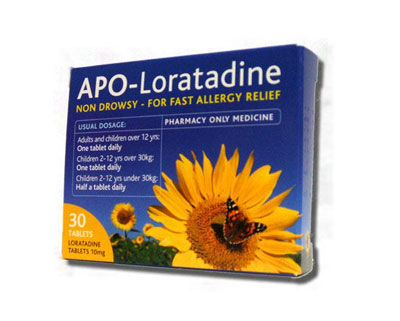Heart Murmur Issues With Loratadine And Aortic Stenosis?
By Adam Pick on September 1, 2007
I spent the first 33 years of my life with a heart murmur resulting from a congential heart disorder known as a bicuspid aortic valve.
Now? After successful heart valve replacement surgery… Guess what? No more more heart murmur!
However, given my history, I am very sensitive to any questions I receive about heart murmurs. Although most murmurs do not results in heart valve surgery, some do. That said, taking preventative steps to minimize the risk of heart valve damage is critical.
Earlier today, I received an email about heart murmurs and loratadine. The questions read, “Can Loratadine cause a heart murmur?” and “Does Loratadine affect Aortic Stenosis?”

So you know, Loratadine is the generic name of popular antihistamine that is more readily known as Claritin. The product is made by Schering-Plough and is consumed in tablet or liquid form.
Intrigued and concerned by the possibility that Loratadine affects aortic stenosis and causes incremental heart valve damage, I did some quick research.
As for heart murmurs, loratadine, aortic stenosis and the possible complications of taking the drug, my research turned up very little clinical information.
However, at a very interesting site, RiskyBloodPressure.com, I learned some very interesting information. The site notes about Loratadine that, “Further testing is needed but it could be that Claritin may act as a vasoconstrictor, which means that the drug narrows blood vessels. If so, the drug can raise blood pressure in the body. If the blood flow in your system has already been compromised with conditions such as high cholesterol, heart disease and high blood pressure, Claritin should be avoided until you can seek further advice from your doctor.”
Pretty interesting, right? What does that tell us? In my opinion, it tells me that you should chat with your cadiologist if you are taking Loratadine and you have a heart problem. Better safe than sorry.
Anyways, I hope that helps us all learn a little more about heart murmur, loratadine, and potential loratadine affects aortic stenosis.
Keep on tickin!
Adam
|
Robert Light says on September 1st, 2007 at 3:53 pm |
|
Adam, This is a good question. As of today, there is very little information regarding loratadine (claritin) and heart murmurs or aortic stenosis. However, it is important to distinguish between Claritin and Claritin D. Claritin D (loratadine/pseudoephedrine) contains pseudoephedrine which has stimulant/vasoconstrictive properties, thus it can increase blood pressure and further complicate cardiovascular conditions such as aortic stenosis. I would postulate that Loratadine (Claritin) should be fine for most patients, but loratadine/pseudoephedrine (Claritin D) should absolutely be avoided. It is important for patients to inform their physicians if they are taking these medications simultaneously. Best regards, |
 |











